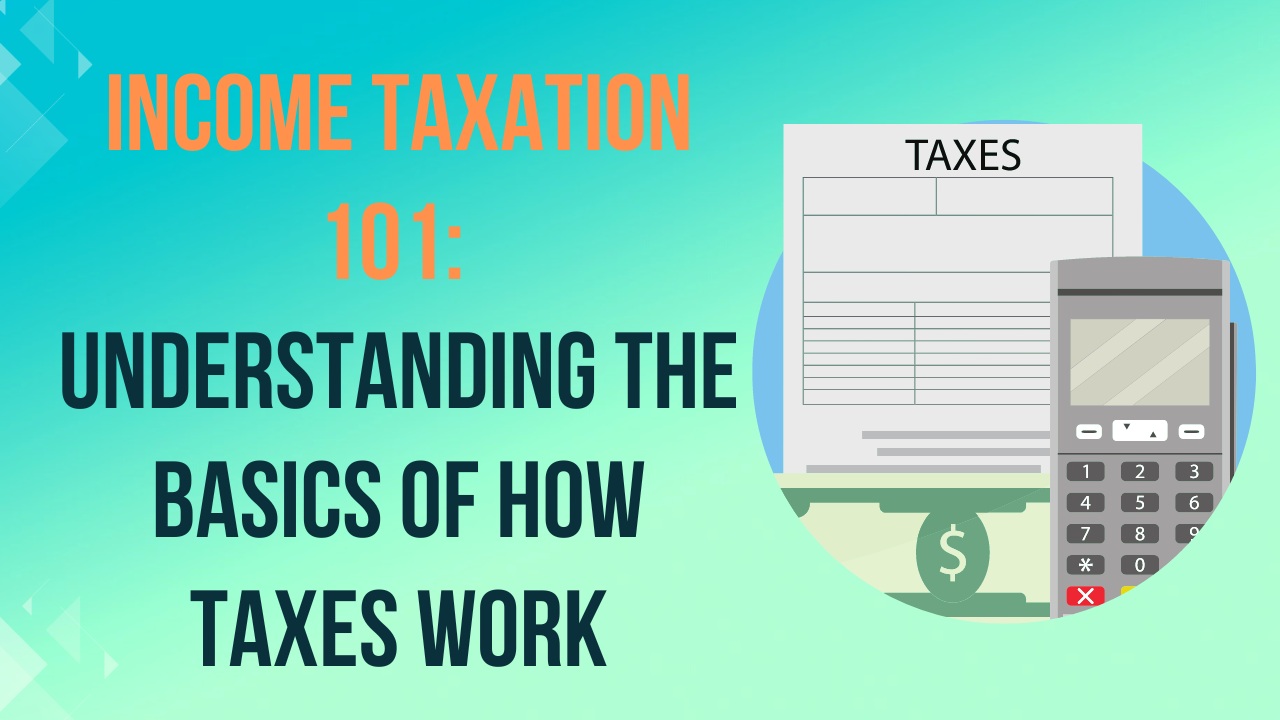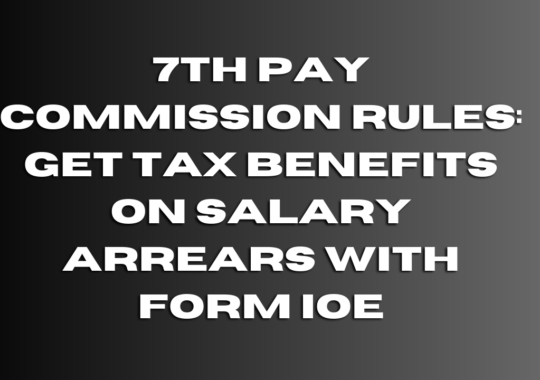Are you one of those people who dread the end of the year because of income tax season? Do the terms W-2, 1040, and Schedule C make you feel overwhelmed and confused? If so, you’re not alone! Many people find income taxation to be a complex and daunting topic, but it doesn’t have to be.
The aim of this article is to simplify the fundamental concepts of income taxation, irrespective of your level of expertise. We will examine the workings of different tax types and furnish you with crucial details that will aid you in submitting your tax returns with accuracy and effectiveness.

Let’s set the stage by defining income taxation and its primary objective before we delve into the intricacies. Income taxation is a mechanism that mandates individuals and businesses to pay a share of their earnings to the government, and this generated revenue is subsequently employed to fund public services and initiatives, such as education, infrastructure, and national defense.
You may be curious about how the government calculates your tax liability. However, this is where things can become more intricate. Your tax liability is determined by various factors, such as your income level, filing status, and eligible deductions or credits. But don’t fret, we’ll guide you through each of these components one at a time.
Whether you’re a recent college graduate entering the workforce for the first time or a seasoned professional with years of experience, understanding income taxation is essential for managing your finances and complying with the law. So let’s get started and demystify the world of income taxes!
The Different Types of Taxes
There are several types of taxes that individuals and businesses may be required to pay. Here are the most common ones:
- Federal income tax: This is the tax that everyone is required to pay on their income at the federal level. The amount of federal income tax you owe depends on your income level, filing status, and deductions or credits you’re eligible for.
- State income tax: Depending on where you live, you may also be required to pay state income tax on your earnings.
- Social Security and Medicare taxes (FICA): These taxes are automatically deducted from your paycheck to fund Social Security and Medicare programs.
- Sales tax: When you make a purchase, you may be required to pay sales tax on the item.
- Property tax: If you own a home or other property, you’ll likely be required to pay property tax on it.
How Taxes are Calculated
The amount of taxes you owe depends on several factors, including your income level, filing status, and deductions or credits you’re eligible for. Here’s a breakdown of each factor:
- Income level: The more money you make, the more taxes you’ll owe. The federal income tax system is progressive, which means that those who earn more pay a higher percentage of their income in taxes.
- Filing status: Your filing status (single, married filing jointly, married filing separately, or head of household) can affect the amount of taxes you owe.
- Deductions and credits: There are various deductions and credits available that can lower your tax liability. Common deductions include those for mortgage interest, charitable contributions, and student loan interest. Credits can include those for having children, paying for child care, or adopting a child.
How to File Your Taxes
In order to comply with the law, individuals and businesses are required to file their taxes every year. Here’s an overview of the steps you’ll need to take:
- Collect all required paperwork: This comprises W-2s, 1099s, and any other tax-related documents you received during the year.
- Decide on your preferred filing method: You can choose to file your taxes either by paper or electronically.
- Establish your filing status: Your filing status will impact the amount of taxes you are liable to pay.
- Compute your tax liability: This involves summing up your income and subtracting any eligible deductions and credits.
- Submit your tax return: This can be accomplished by mail or electronically.
Also read:
Income Tax Calculator for AY 2020-21 – Calculate your Taxes Here
How to Get Monthly Income by Investing Rs.10 Lakhs
Fixed income investments vs. Market linked products – Which one to choose?
Six Ways To Protect Your Income From Being Taxed
FAQs
What is income tax?
Individuals, businesses, and other entities are subject to income tax imposed by the government. The tax amount owed is calculated by assessing the individual’s taxable income, which pertains to the income that is subject to taxation after considering any deductions and exemptions.
How is income tax calculated?
The calculation of income tax relies on the individual’s taxable income, which is the remaining income after factoring in deductions and exemptions. The tax rate is dependent on the person’s income bracket, with higher-earning individuals subjected to a greater tax rate.
What are deductions and exemptions?
By subtracting deductions and exemptions from an individual’s taxable income, the amount of tax owed can be lowered. Mortgage interest, charitable donations, and medical expenses are some examples of deductions, while exemptions usually take into account the individual’s personal and family circumstances.
What is the difference between federal, state, and local income taxes?
Federal income tax is a tax levied by the federal government on individuals and businesses, whereas state income tax is a tax levied by individual states on income earned within their borders. Additionally, some cities or municipalities may impose local income tax. Tax rates and regulations may differ at each level of government.
What happens if I don’t file my taxes?
Failing to file your taxes can result in penalties and interest charges, and in some cases, legal action. The penalties and charges may increase the longer you wait to file, so it’s important to file your taxes on time or request an extension if necessary.
Can I get help with filing my taxes?
Certainly, there are several resources accessible to assist individuals in filing their taxes, such as tax preparation software, tax professionals, and volunteer programs like the Volunteer Income Tax Assistance (VITA) program. It’s crucial to ensure that the selected person or program is trustworthy and capable of offering tax support.
Conclusion
Ultimately, comprehending the fundamental principles of income taxation is imperative for everyone, regardless of whether you are a student, a working adult, or a business proprietor. Taxes serve as a significant revenue source for the government and are allocated towards numerous public services and programs. Hence, it is crucial to be cognizant of your tax responsibilities and adhere to them to prevent any legal or financial repercussions.
In general, income taxation can appear intricate and daunting. Nevertheless, comprehending the fundamentals can aid you in making informed financial decisions and preventing any legal or financial repercussions. Ensure that you maintain accurate records, comprehend your tax responsibilities, and leverage any available deductions or credits. By keeping these recommendations in mind, you can confidently navigate the intricacies of income taxation.



